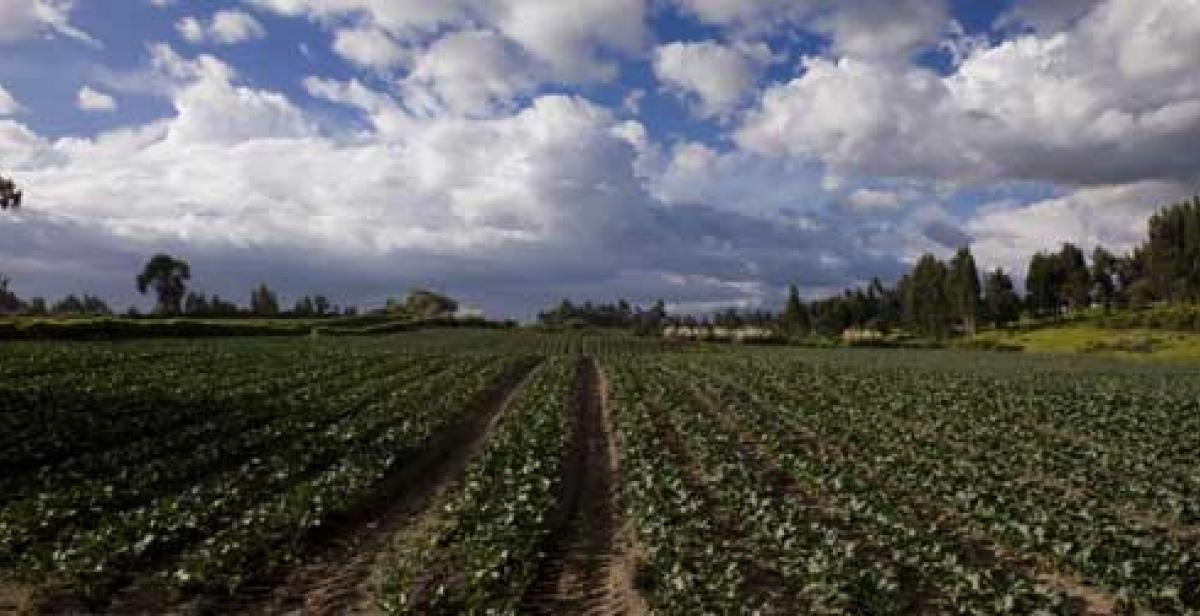We only have a limited amount of freshwater on this planet, so how do we use it? Petra Kjell reflects on World Water Week 2011.
When did you last think about the many different ways water influences our lives? For me, a yearly reminder is the World Water Week conference in Stockholm, which gathers some of the most prominent scientists, thinkers and others interested in water issues.
Much of the focus this year was rightly on the need for safe drinking water and sanitation, which was declared a human right last year. The 2015 deadline for achieving the Millennium Development Goal on access to water and sanitation is fast approaching, and while water access has made progress, sanitation is still far behind. And that’s without taking into account the potential impact of climate change, which could reverse any progress made on water issues.
Going deeper into water issues
But access to drinking water and sanitation aren't the only problems, water is needed for so much more, a fact that many of the delegates of the conference were becoming increasingly aware of. Despite there being enough water on the planet for us all, it is unevenly distributed, and climate change is making this worse. On top of this a growing population and changing production and consumption patterns are putting further strains on the resources available.
The upcoming Rio+20 Earth Summit, scheduled for June next year, talks about the ‘water, food and energy nexus’. Food security is a key topic that the world is battling with, but agriculture is the highest user of freshwater – do we have enough water to produce more food? Similarly even ‘green’ renewable energy technologies can be highly water intensive, such as hydro-power and biofuels – how do we match the demand for this? On top of this, in addition to our fundamental need for drinking water, industry needs water to function, and water is also needed for flora and fauna to keep this planet flourishing.
Solving the 'nexus' so that water works for us all
This ‘nexus’ is not an easy one to solve. Where water is scarce different needs need to be prioritised, but what is the basis of decision making? While governance and regulation must play its part, much talk is about the ‘value’ of natural resources, bringing water and other natural resources into the formal economy to discourage overuse.
From Progressio’s point of view, one priority is to understand what role poor people play within all of this. It is clear that overuse must be discouraged, but it is also clear that poor communities without reliable access to water must be prioritised – and women need to play a key part since they are often the main water managers on a household level. Any ‘nexus’ or market based approaches must have this recognition at its core.
What about when the water is there but you can't get to it?
Ultimately sustainable and equitable governance and management of water resources must play a key role. This is essential because water scarcity in itself isn’t always the main problem. Out of the 2.8 billion people who live with water scarcity today, over half suffer ‘economic’ water scarcity, meaning that water is there, but it isn’t accessible due to financial, human or institutional capacity. Without this understanding no ‘new’ solutions will ultimately be sustainable.
Crunch time is approaching and we need to put our thinking caps on to ensure we stay on the right path to not only solve the ‘nexus’ problem, but to also support those most in need in the battle to secure water. We must also involve them in the conversation. If anything, those most in need are the ones who will never take water for granted and will always have it on their minds.
Petra Kjell is Progressio's Environment Policy and Advocacy Officer. To find out more about the water, food and energy nexus why not watch this short video which explains 'The Nexus in a Nutshell' on the Bonn 2011 Conference website.
Photo: Broccoli plantations in Quito, Ecuador (© Santiago Serrano/Progressio)



